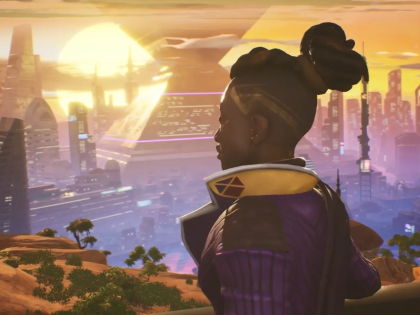
Zau is a mirror
Inspired by a tapestry of Bantu folk stories, the video game 'Tales of Kenzera: Zau' is rich with mythology that many Africans know as our heritage.

Inspired by a tapestry of Bantu folk stories, the video game 'Tales of Kenzera: Zau' is rich with mythology that many Africans know as our heritage.

Nigerian comedians are getting political.

How did microfinance become a craze championed by bleeding-heart progressives to Global South economists, American presidents, and business executives?

Select success stories obscure the intentional underdevelopment of women’s football in Africa.

The Olympics, with its provocative patriotism, are the perfect forum for using a broader diasporic focus to push back against hypernationalism.

Removed from the facts, the firestorm around Algerian boxer Imane Khelif is the latest attempt by the right-wing in the West to find fodder for its culture war.

In South Africa, a popular beauty contest is revealing the specter of ultranationalism and anti-blackness.

The theft dispute between Onezwa Mbola and Nara Smith reveals the consumerist undertones behind content for women in the online creative economy.

In a new film, former UN-Secretary General Dag Hammarskjöld is portrayed as a defender of a fledgling postcolonial state. But his role in the Congo Crisis is more complicated.

On the tragic death of 24-year-old marathon record holder Kelvin Kiptum.

'Funeral for Justice' is a bracing recording that blends the critical sensibility of Frantz Fanon with the melodies of a genre born from an ongoing liberation struggle.

Beneath the image of togetherness, the world’s biggest athletic spectacle is still beset by discrimination and exclusion.

Siddhartha Deb’s latest book asks readers to consider incarceration as both a metaphor and fact of life in India today.

Amid the turmoil of the Anglophone Crisis in Cameroon, a unique group of individuals has emerged as powerful agents of change.

At the height of African decolonization, radical writers turned to interactive features like competitions and quizzes to engage their audiences.

It happened in 1969. But just how did he world’s greatest, richest and most sought-after footballer at the time, end up in Ghana?

Bolanle Austen-Peters' new biopic on Funmilayo Ransome-Kuti often feels too simple and safe.

Nigeria's archives of revolutionary printmaking offers us insights into the dissident voices of the country's old left, which are surprisingly relevant today.

A docuseries about the Springbok rugby team invites us to examine the enduring legacy of Rainbowism in South Africa.

Since independence, Botswana has relied on its natural resources. But to secure its future, it needs to turn to its cultural heritage too.